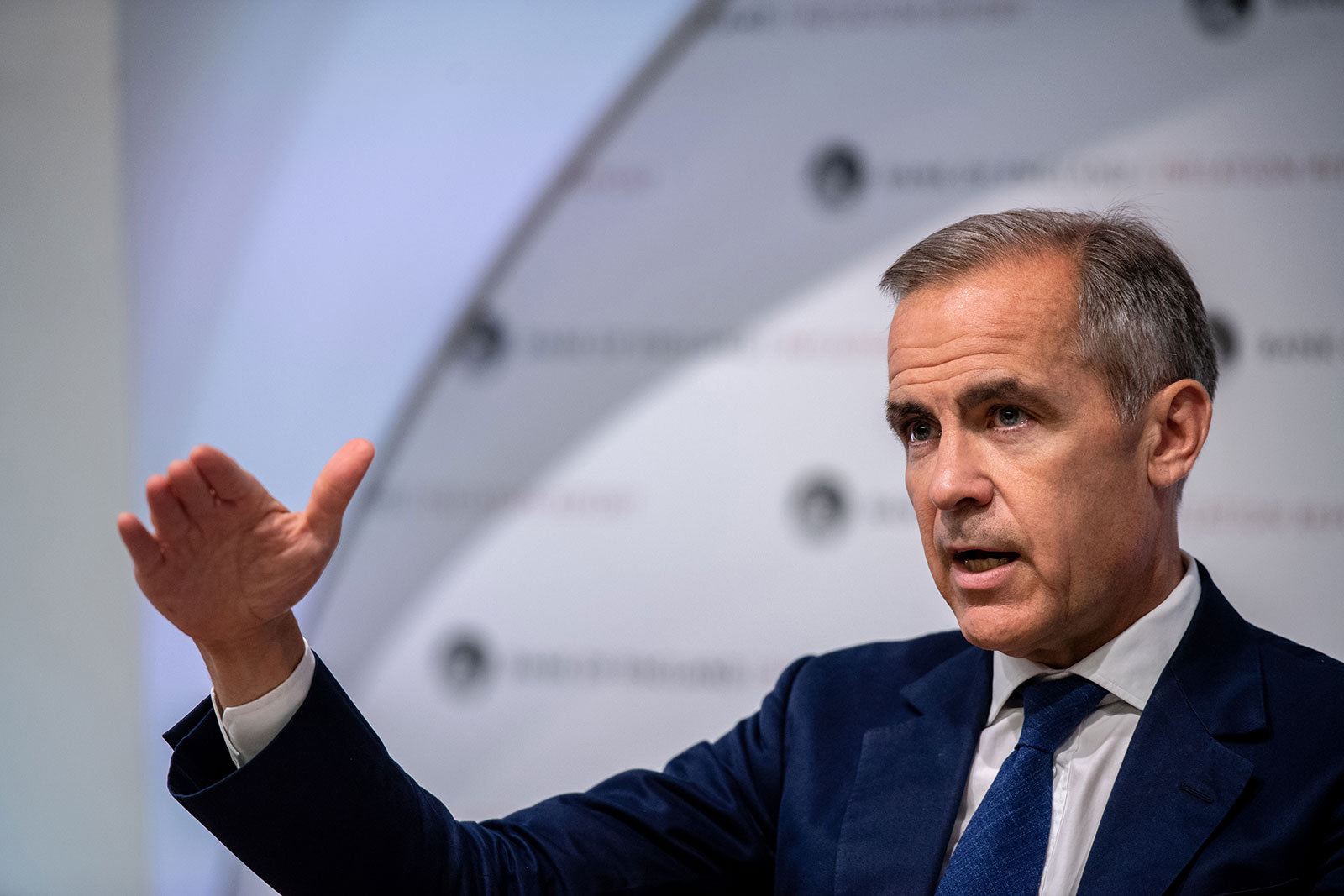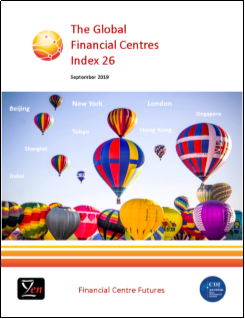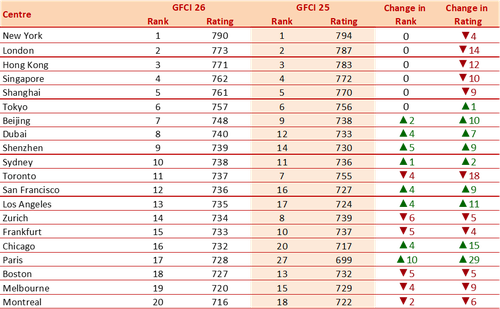In 2019 the UK spirits market made £344 billion in revenue, but how is the wine and spirits industry preparing for shifts like climate change, Brexit, and unexpected competition? Our Wine & Spirits special report explores how the UK wine industry is reaping the benefits of extreme climate changes. It examines how investors can begin investing in wine, an area often considered inaccessible and intimidating, and thereby diversify their portfolios. It also looks at whether the cannabis industry will threaten alcohol sales and consumption in the future. Finally, the featured infographic looks at the £370 billion global wine industry, from average consumption to countries’ preferred imports and exports.
11 December 2019
30 November 2019
10 November 2019
Raconteur: Future CEO 2019
How has the CEO role evolved, and what are the biggest management and operational challenges facing business leaders? The Future CEO special report, published in The Sunday Times, covers the changing CEO role from traditional command and control to one of inclusive and purposeful leadership. It explores how business leaders of tomorrow need to prioritise self-development and ensure they are constantly renewing their skills and capabilities to have an impact on society, beyond pursuing profits and wealth. It examines the top five traits investors look for in a leader and why female representation on UK boards is on the rise, but that doesn’t necessarily mean female CEOs are. Also featured is an infographic on how CEOs are balancing their responsibilities and what their top priorities are as their role develops.
09 November 2019
Vivien Teu & Co - Tax in the transparent world: a review and update on automatic exchange of information
The Organisation for Economic Cooperation and Development (“OECD”) has in recent years doubled up efforts of (non-US) tax authorities globally towards chasing taxpayers who are flying under the radar of their home countries’ tax authorities and who do not declare their income or gains arising from assets or investments held overseas. As a responsible member of the international community and in keeping up its international reputation and competitiveness as an international financial centre, Hong Kong has also adopted automatic exchange of information between tax authorities, moving from its previous position of providing information only upon request.
In this synopsis, we provide an outline of the global changes that have driven the enhancement of tax transparency – more specifically, the international standard on automatic exchange of financial account information in tax matters, which has now been implemented by many jurisdictions globally including Hong Kong and China.
01 November 2019
Raconteur: Future CFO 2019
71 per cent of finance leaders say they are increasingly responsible for ethical decision-making in support of their organisation’s purpose. The Future CFO special report covers the ever-changing CFO role beyond that of number crunchers to that of value leaders. It explores why CFOs need to upskill, why so many are burning out, and how repositioning them at the centre of business is beneficial. Also featured is an infographic on how CFOs create value within the company beyond finance activities.
31 October 2019
OECD releases guidance on the spontaneous exchange by no or only nominal tax jurisdictions
As part of BEPS Action 5 to curb harmful tax practices, jurisdictions may only maintain preferential regimes if certain "substantial activities" requirements are met. In order to ensure a level playing field, these requirements must also apply to jurisdictions with zero or only nominal tax rates. As a result, the Inclusive Framework on BEPS decided in November 2018 to resume the application of the substantial activities requirement for no or only nominal tax jurisdictions. This will ensure that substantial activities must be performed in respect of the same types of mobile business activities, regardless of whether they take place in a preferential regime or in a no or only nominal tax jurisdiction.
Against that background, the new substantial activities standard for no or only nominal tax jurisdiction, requires them to spontaneously exchange information on the activities of certain resident entities with the jurisdiction(s) in which the immediate parent, the ultimate parent and/or the beneficial owners are resident. This information will allow the tax authorities of these jurisdictions to assess the substance and the activities of the entities resident in no or only nominal tax jurisdictions.
In order to ensure that these spontaneous exchanges take place in a coordinated and efficient manner, the guidance released today sets out the practical modalities regarding the exchange of information requirements of the Standard.
It contains guidance on the timelines for the exchanges, the international legal framework and clarifications on the key definitions in order to make sure that jurisdictions receive coherent and reliable information on the activities of the entities in no or only nominal tax jurisdictions and their owners.
It is expected that exchanges pursuant to the standard will commence in 2020.
The guidance also contains a standardised IT-format for the spontaneous exchanges, the NTJ XML Schema and the related user guide.
24 October 2019
FATF: Best Practices on Beneficial Ownership for Legal Persons
Anonymous shell companies are one of the most widely used methods for laundering the proceeds of crime and corruption. New FATF Best Practices help countries get rid of the cloak of secrecy concerning the ultimate owner of a company, foundation, association or any other legal person, and prevent their misuse for crime and terrorism.
The Financial Action Task Force (FATF) is the global standard-setter for measures to fight money laundering and terrorist financing. In 2003, the FATF became the first international body to set global standards on beneficial ownership. It required countries to ensure that their authorities could obtain up-to-date and accurate information about the person(s) behind companies and foundations and other legal persons. The FATF further strengthened and clarified its beneficial ownership requirements in 2012.
Nevertheless, the assessments of countries actions’ in this area since then show that many countries still find it challenging to ensure transparency of ownership of legal persons. Many are not able to effectively prevent criminals and terrorists from hiding their identity and illegal activities behind the façade of seemingly legitimate activity.
The FATF has finalised best practices with examples from across the global network of FATF and FATF-Style regional bodies' members, which will help countries implement the FATF’s requirements. The report highlights that jurisdictions using a multi-pronged approach with several sources of information are often more effective in preventing the misuse of legal persons for criminal purposes.
The report identifies the most common challenges that countries face in ensuring that the beneficial owner(s) of legal persons is identified, and suggests key features of an effective system.
The paper also suggests options for jurisdictions to obtain beneficial ownership information of overseas entities.
22 October 2019
Raconteur: Fighting Fraud 2019
Insurance fraud in the UK is on the rise, in 2018 alone UK insurance fraud cases reached a combined value of £17 million, almost £5m more from 2017. The Fighting Fraud special report explores the cost of fraud for various global industries, Brexit causing UK fraud concerns to rise, and the dark side of medical image manipulation. It examines the importance to educate and caution younger generations on financial risks with online data sharing and emerging technologies that help to combat the rise in cybercrime. Finally, it covers the real cost of cybercrime through an infographic looking at what companies stand to lose with poor cybersecurity.
Nespresso Launches its First-ever Cafecito de Puerto Rico Coffee and Reaffirms its Commitment to Reviving the Island's Coffee Sector
Coffee has been a part of Puerto Rico’s rich culture and heritage for generations, but in 2017, hurricanes Maria and Irma destroyed more than 80 percent of the island’s coffee harvest and trees. Working alongside the Hispanic Federation, TechnoServe, and others, Nespresso is helping coffee farmers and communities replant their land, reclaim their futures and restore Puerto Rico’s incredible coffee industry.
Our efforts in Puerto Rico are part of the Nespresso REVIVING ORIGINS program, which helps revitalize coffee production in farming regions that are under threat due to political conflict, economic hardship or environmental disasters.
Zesty and intense, Cafecito de Puerto Rico is a limited edition coffee that highlights the natural earthiness of Puerto Rico's coffee beans. Perfect on its own, Cafecito de Puerto Rico also mixes perfectly with cream and brown sugar for a "Café Cortadito," a favorite of locals in the city of San Juan.
Reviving Origins by Nespresso - Puerto Rico
"Nespresso has a long legacy of supporting coffee growing regions and communities around the world. We established our Reviving Origins initiative to help farmers revive their coffee farms in areas where production has been negatively impacted or completely destroyed by natural disasters or other adversities," said Guillaume Le Cunff, President and CEO of Nespresso USA. "Coffee is vital to Puerto Rico's rich and vibrant culture and economy. By leveraging the Hispanic Federation's deep understanding of the needs on the island, we can support farmers' livelihoods and foster economic opportunity while offering U.S. customers a truly unique coffee experience."
In October 2018, working alongside the Hispanic Federation, global non-profit TechnoServe, and other organizations, Nespresso committed $1 million as part of a three-year initiative to help revitalize Puerto Rico's coffee industry. The effort plans to reach 1,500 farmers in Puerto Rico through on-the-ground training and mentoring in agronomic and business skills that will help farmers improve the quality and quantity of their crop yields and increase their incomes.
Nespresso Ambassador George Clooney and acclaimed playwright and actor, and proud Puerto Rican, Lin-Manuel Miranda joined forces with Nespresso and the Hispanic Federation to champion the importance of coffee farming in Puerto Rico and spotlight the transformative power coffee can have on farmer livelihoods, communities, and the island's revitalization efforts.
"Puerto Rico still needs our help, and it will take a tremendous effort from both private and public organizations to ensure efforts on the ground have a meaningful and lasting impact," said José Calderón, President of the Hispanic Federation. "We're pleased with the progress we're making, but it is only the beginning. With the help of Nespresso and its consumers, we're optimistic about the future of coffee on the island."
Contributions to the Hispanic Federation will support the organization's efforts with World Coffee Research and Puerto Rico Coffee Roasters to plant 2.25 million new coffee trees in Puerto Rico. In addition to funding the initial revitalization initiative, Nespresso has committed 50,000 trees to this effort. Starting in November, Nespresso consumers can further support these efforts by simply recycling their capsules using a limited edition recycling bag. Every Puerto Rico recycling bag represents one new coffee tree that will be planted on the island. To celebrate coffee, culture and art in Puerto Rico, the bag features original artwork, titled Inspiration, by Puerto Rican artist Gerardo Cloquell.
18 October 2019
Mauritius - Kenya: Expansion of the Double Taxation Avoidance Agreement (DTAA) network
A Protocol amending the Double Taxation Avoidance Agreement (DTAA) network finalised by Mauritius and Kenya on 10 April 2019, was signed on Wednesday 16 October 2019, in Washington, by the Financial Secretary of the Ministry of Finance and Economic Development, Mr Dharam Dev Manraj. The latter is presently attending the IMF/World Bank meetings. Discussions by technical teams of both parties were successfully concluded in September.
The DTAA will eliminate double taxation and provide greater tax certainty for Mauritian businessmen. It will make clear the taxing rights of Mauritius and Kenya on all forms of income arising from cross-border economic activities between the two countries. Mauritian businessmen and investors looking for opportunities in Kenya will benefit from this Agreement as will the Kenyan businessmen and investors looking for opportunities in Mauritius.
The Agreement aims at encouraging greater cross-border investment flows between the two countries. The DTAA will ensure that income derived by investors do not suffer double taxation, and will provide greater tax certainty for businessmen of both countries as it makes clear the taxing rights of Mauritius and Kenya on all forms of income arising from cross-border economic activities.
Moreover, it will enable investors to enjoy more favourable tax rates than what is applied under the domestic law. The Mauritius-Kenya DTAA will also bring the competitiveness of Kenyan companies at par with other African countries already having a DTAA with Mauritius.
In addition, the Mauritius-Kenya DTAA will offer Kenyan companies with fiscal certainty in their international business operations involving Mauritius. As such, Mauritian businessmen and investors looking for opportunities in Kenya will benefit from this Agreement as will the Kenyan businessmen and investors looking for opportunities in Mauritius.
The DTAA will also provide Mauritius-Kenya tax authorities an effective mechanism to fight tax evasion and other malpractices.
16 October 2019
Raconteur: Cloud for Business 2019
Adopting cloud technology can transform your business, but finding the best strategy is not always easy. The Cloud for Business special report explores various cloud business models, what to look for when deciding on a cloud service beyond initial cost, and five ways to make the most of a multi-cloud approach. It also examines overcoming your data quality issues to become more data enabled and the impact of cloud technologies on employee development, the workforce, and overall business performance. Also featured is an infographic showing how different companies are approaching cloud deployment.
Raconteur: Combating Cancer 2019
In the UK, 340 people are diagnosed with cancer every day so what is being done to combat the disease? The Combating Cancer special report explores pilot assessment centres for patients who present inconclusive symptoms and how immunotherapy advancements are giving patients a new lease on life. It covers dealing with cancer in the workplace, using proton beam therapy for hard-to-treat cancers, and the use of art to help cancer patients in hospitals. Also featured is an infographic showing the rising global rates of obesity and cancer.
10 October 2019
Raconteur: Legal Innovation 2019
Can machines reach more trusted verdicts than juries? The Legal Innovation special report covers the debate for and against the jury system, how robo-mediators might become the norm to help solve common legal problems and co-parenting issues, and the changing day-to-day lives of junior lawyers as automation becomes implemented in law firms. It explores the complicated patenting process with the cross-pollination of ideas and technologies in the autonomous vehicles market. Finally, it covers how in-house legal departments are becoming valued decision-making partners within large enterprises.
07 October 2019
Deeptrace: Mapping the Deepfake Landscape
The rise of synthetic media and deepfakes is forcing us towards an important and unsettling realization: our historical belief that video and audio are reliable records of reality is no longer tenable.
I choose the word “historical” as this belief is a coincidence of how technology has evolved. Still today, we trust a phone call from a friend or a video clip featuring a known politician, simply based on the recognition of their voices and faces. Previously, no commonly available technology could have synthetically created this media with comparable realism, so we treated it as authentic by definition. With the development of synthetic media and deepfakes, this is no longer the case. Every digital communication channel our society is built upon, whether that be audio, video, or even text, is at risk of being subverted.
Since its foundation in 2018, Deeptrace has been dedicated to researching deepfakes’ evolving capabilities and threats, providing crucial intelligence for enhancing our detection technology. In this report we share the insights f rom our most comprehensive mapping of the deepfake landscape to date, revealing deepfakes’ real-world impact. In doing so, we provide an expert overview of the current state of deepfakes, cutting through some of the hyperbole surrounding the topic. The findings we present here are grounded in independently sourced data, accompanied by insights f rom leading experts in this area.
Our research revealed that the deepfake phenomenon is growing rapidly online, with the number of deepfake videos almost doubling over the last seven months to 14,678. This increase is supported by the growing commodification of tools and services that lower the barrier for non-experts to create deepfakes. Perhaps unsurprisingly, we observed a significant contribution to the creation and use of synthetic media tools from web users in China and South Korea, despite the totality of our sources coming from the English-speaking Internet.
Another key trend we identified is the prominence of non-consensual deepfake pornography, which accounted for 96% of the total deepfake videos online. We also found that the top four websites dedicated to deepfake pornography received more than 134 million views on videos targeting hundreds of female celebrities worldwide. This significant viewership demonstrates a market for websites creating and hosting deepfake pornography, a trend that will continue to grow unless decisive action is taken.
Deepfakes are also making a significant impact on the political sphere. Two landmark cases f rom Gabon and Malaysia that received minimal Western media coverage saw deepfakes linked to an alleged government cover-up and a political smear campaign. One of these cases was related to an attempted military coup, while the other continues to threaten a high- profile politician with imprisonment. Seen together, these examples are possibly the most powerful indications of how deepfakes are already destabilizing political processes. Without defensive countermeasures, the integrity of democracies around the world are at risk.
Outside of politics, the weaponization of deepfakes and synthetic media is influencing the cybersecurity landscape, enhancing traditional cyber threats and enabling entirely new attack vectors. Notably, 2019 saw reports of cases where synthetic voice audio and images of non-existent, synthetic people were used to enhance social engineering against businesses and governments.
Deepfakes are here to stay, and their impact is already being felt on a global scale. We hope this report stimulates further discussion on the topic, and emphasizes the importance of developing a range of countermeasures to protect individuals and organizations from the harmful applications of deepfakes.
Giorgio Patrini
Founder, CEO, and Chief Scientist
04 October 2019
EU list of non-cooperative jurisdictions for tax purposes - Annex II Update: Mauritius
Mauritius adopted on 25 July 2019 its Finance Bill 2019 and on 16 August 2019 additional regulations that amended the legislation applicable to its Freeport zone (MU012) and Partial Exemption (MU010) regimes.The COCG meeting of 13 September 2019 examined these amendments and concluded that Mauritius had met its commitment to address the deficiencies identified in these two regimes: whilst the Freeport zone regime is no longer preferential, substance requirements have been introduced in both regimes and the issue of lack of anti-abuse rules has been addressed by the introduction of CFC rules broadly aligned with those of EU's anti tax avoidance directive (ATAD 1). As a result, the COCG concluded that Mauritius should therefore be removed from section 2.1 of Annex II.
ESAs highlight money laundering and terrorist financing risks in the EU financial sector
The three European Supervisory Authorities (EBA, EIOPA and ESMA - ESAs) published today their second joint Opinion on the risks of money laundering (ML) and terrorist financing (TF) affecting the European Union's (EU) financial sector. Drawing on data and information provided by national anti-money laundering (AML) and countering the financing of terrorism (CFT) competent authorities (CAs), the ESAs found that the monitoring of transactions and suspicious transactions reporting still raise concerns, particularly in sectors where a financial institution's business model is based on frequent transactions. This Opinion contributes to strengthening the EU's AML and CFT efforts.
The ESAs are concerned about weaknesses in the control frameworks put in place by financial institutions, particularly for transaction monitoring and suspicious transactions reporting, in sectors with high volumes of transactions. Equally, it appears that the development of adequate business-wide and customer risk assessments is still a challenge for financial institutions across different sectors and is an areas that would benefit from more guidance from CAs.
Furthermore, in addition to divergences in the national transposition of the Fourth Anti-Money Laundering Directive (AMLD4), as identified in the first Joint Opinion published in 2017, today's Opinion identifies divergences between certain provisions in the AMLD4 and other EU legal acts, particularly those related to authorisations, fitness and propriety and assessments of qualifying holdings. Some of these concerns have already been addressed through recent revisions in legal frameworks like the Capital Requirements Directive (CRDV).
The ESAs acknowledge that the use of new technologies may offer opportunities to better fight financial crime, however, this Opinion also confirms that the increasing use of new technologies by credit and financial institutions may give rise to ML/TF risks if vulnerabilities are not understood and mitigated. Equally, the rapid spread of virtual currencies is also an area of growing concern for the ESAs, as they often give rise to heightened ML/TF risks due to the absence of a common regulatory regime and the anonymity associated with them.
To tackle these risks and concerns effectively, the ESAs consider that CAs must play a more active role and enhance their engagement with the private sector to develop a better understanding of new technologies, products and services available to credit and financial institutions. CAs should also consider whether they have a sufficient understanding of risks and controls in those sectors where they have carried out only limited assessments and may need to review their supervisory approach.
01 October 2019
Smash and Grab – The UK’s Money Laundering Machine
In 2017, Bellingcat and Transparency International UK published their joint report, “Offshore in the UK”, describing the phenomenon of Scottish Limited Partnerships (“SLPs”) and their use as a mechanism in global money laundering scandals and a range of illicit activities. Since then, SLPs have continued to be implicated in further scandals, perhaps most notably the Azerbaijani Laundromat, a scheme where $2.9 billion was laundered through UK companies.
29 September 2019
Raconteur: Future of Fintech 2019
Can AI eliminate the threat of cyberfraud completely? The Future of Fintech special report covers the shift from not only detecting cyberfraud, but possibly eliminating it. It also explores how mobile apps are enabling consumers to become better investors and bank runs in a cashless society. It examines five common financial challenges immigrants face when arriving in a new country and how startups are offering services to make migrant transition financially more accessible.
23 September 2019
Raconteur: Future of Payments 2019
96 per cent of people in Singapore are ready and willing to use biometric payments, according to a recent study by Visa, but is this enthusiasm mirrored elsewhere? The Future of Payments special report, published in The Times, examines the barriers to widespread biometric adoption, the arguments for and against facial recognition, and why Scandinavian banks have decided to embrace wearables over fingerprints. It covers the obstacles in the way of India’s transition to mobile money only and whether going cashless will mean financial exclusion for the elderly. Other issues explored include why America is so behind in payment technology, if Apple’s new credit card is a cause for concern and whether money really can buy happiness, after all.
21 September 2019
Mauritius: FSC issues Investor Alert on “Cloud Token Mauritius” & “Cloud Token Indian Ocean and Africa”
It has come to the attention of the Financial Services Commission (the “FSC”) that the public is being solicited by a certain group of people on social media under the name of “Cloud Token Mauritius” and “Cloud Token Indian Ocean and Africa” to invest in digital assets and crypto currencies through the “Cloud Token” mobile application. It has also come to the attention of the FSC that events are being hosted in publicly accessible areas in Mauritius to promote this application.
The public is informed that Cloud Token Mauritius and Cloud Token Indian Ocean and Africa and/or any other individuals or representatives operating under these names are not and have not, at any point in time, been licensed and regulated by the FSC.
19 September 2019
Globalization in Asia: Flows and networks shaping the Asian Century | McKinsey
The Asian Century has begun. Asia is the world’s largest regional economy and, as its economies integrate further, it has the potential to fuel and shape the next phase of globalization.
Trulioo: Beneficial ownership rules: improving transparency and availability of UBO information
To help put an end to financial crime and corruption, one of the most important steps regulators and governments can take is to ensure that effective beneficial ownership transparency rules and procedures are in place.
18 September 2019
Z/Yen: Global Financial Centres Index 26 (GFCI 26)
London hung onto its second place ranking in the Global Financial Centres Index 26, launched today by Z/Yen Group in partnership with the China Development Institute (CDI) in both London and Shenzhen.
New York extended its lead over London to 17 points. Strong performances from other centres, in particular Paris, put London’s second place in the index at risk next time. If London and Paris have similar falls and rises in the ratings for GFCI 27, London would be reduced to a two point lead over Paris and lie behind Shanghai.
The new FinTech index, published for the first time alongside the GFCI, is dominated by Chinese centres taking five of the top seven places in the index, led by Beijing and Shanghai. New York, London, Singapore, San Francisco, and Chicago also feature in the top ten for FinTech.
Trade wars, geopolitical unrest, and Brexit are introducing significant adjustments to medium-term perceptions.
The top 20 centres are shown in the table below.
Other News
Twelve centres rose 10 or more places in the rankings and ten fell 10 or more places.
Performance across the index showed slightly reduced confidence, with the overall ratings falling around 2.5% from GFCI 25. Thirty-one of the 104 centres fell in the ratings, including all of the top five centres.
Seven of the top ten places in the index are now taken by Asia/Pacific centres, continuing the region’s strong performance over recent years.
Leading Centres
New York retains its first place in the index, extending its lead over London from seven to 17 points. Hong Kong is now only two points behind London. Singapore and Shanghai remain in fourth and fifth position. All five top centres fell in the ratings in GFCI 26.
London held onto second place in the index, but fell 14 points in the ratings. If London and Paris have similar falls and rises in the ratings in GFCI 27, London would be reduced to a two point lead over Paris and would lie behind Shanghai.
Shenzhen, Dubai, and Sydney entered the top 10, easing out Toronto, Zurich, and Frankfurt.
Within the top 30 centres, Paris has performed well, rising 10 places to 17th.
Western Europe
Following a good performance in GFCI 25, this region had a more mixed performance in GFCI 26, with 15 centres rising in the rankings and 13 falling.
Asia/Pacific
Asia/Pacific Centres performed well, with 20 of the 27 centres in the region either retaining or improving their position in the rankings. Nanjing entered the index for the first time.
There were significant rises for Wellington, Mumbai, and Chengdu.
North America
North American centres had mixed fortunes in GFCI 26, with Canadian centres dropping back following their improved performance in GFCI 25, while US centres generally improved their rankings and ratings.
Seven out of the ten North American centres in the index are in the top 20.
Eastern Europe & Central Asia
Nur-Sultan (formerly Astana) retained its top ranking in the Eastern Europe & Central Asia region, consolidating its position despite being a recently-formed financial centre.
All but two of the 16 centres in the region improved their rating, with nine centres improving their overall ranking.
Middle East & Africa
Dubai, Casablanca, Tel Aviv, and Doha continued to rise in the index, with Dubai entering the top ten in the world. There were significant improvements for Mauritius, Bahrain, and Nairobi.
Latin America & The Caribbean
The Bahamas and Buenos Aries performed well in GFCI 26, rising 11 and ten places in the rankings respectively.
Island Centres
The British Crown Dependencies’ performance dipped, with the Isle of Man down five places in the rankings, Jersey falling 12, and Guernsey continuing its rapid decline in the index, dropping 17 places following its 15-place fall in GFCI 25.
Full details of GFCI 26 can be found at www.globalfinancialcentres.net
Professor Michael Mainelli, Executive Chairman of Z/Yen, said:
"Competition at the top of the GFCI is intensifying. London is in a ‘slipping second’ position globally and a ‘slipping first’ in Europe amidst high volatility emanating from policy uncertainties, Brexit, trade wars, and geopolitical unrest. Asian centres and a resurging Paris are fighting for that second place spot.”
New York extended its lead over London to 17 points. Strong performances from other centres, in particular Paris, put London’s second place in the index at risk next time. If London and Paris have similar falls and rises in the ratings for GFCI 27, London would be reduced to a two point lead over Paris and lie behind Shanghai.
The new FinTech index, published for the first time alongside the GFCI, is dominated by Chinese centres taking five of the top seven places in the index, led by Beijing and Shanghai. New York, London, Singapore, San Francisco, and Chicago also feature in the top ten for FinTech.
Trade wars, geopolitical unrest, and Brexit are introducing significant adjustments to medium-term perceptions.
The top 20 centres are shown in the table below.
Other News
Twelve centres rose 10 or more places in the rankings and ten fell 10 or more places.
Performance across the index showed slightly reduced confidence, with the overall ratings falling around 2.5% from GFCI 25. Thirty-one of the 104 centres fell in the ratings, including all of the top five centres.
Seven of the top ten places in the index are now taken by Asia/Pacific centres, continuing the region’s strong performance over recent years.
Leading Centres
New York retains its first place in the index, extending its lead over London from seven to 17 points. Hong Kong is now only two points behind London. Singapore and Shanghai remain in fourth and fifth position. All five top centres fell in the ratings in GFCI 26.
London held onto second place in the index, but fell 14 points in the ratings. If London and Paris have similar falls and rises in the ratings in GFCI 27, London would be reduced to a two point lead over Paris and would lie behind Shanghai.
Shenzhen, Dubai, and Sydney entered the top 10, easing out Toronto, Zurich, and Frankfurt.
Within the top 30 centres, Paris has performed well, rising 10 places to 17th.
Western Europe
Following a good performance in GFCI 25, this region had a more mixed performance in GFCI 26, with 15 centres rising in the rankings and 13 falling.
Asia/Pacific
Asia/Pacific Centres performed well, with 20 of the 27 centres in the region either retaining or improving their position in the rankings. Nanjing entered the index for the first time.
There were significant rises for Wellington, Mumbai, and Chengdu.
North America
North American centres had mixed fortunes in GFCI 26, with Canadian centres dropping back following their improved performance in GFCI 25, while US centres generally improved their rankings and ratings.
Seven out of the ten North American centres in the index are in the top 20.
Eastern Europe & Central Asia
Nur-Sultan (formerly Astana) retained its top ranking in the Eastern Europe & Central Asia region, consolidating its position despite being a recently-formed financial centre.
All but two of the 16 centres in the region improved their rating, with nine centres improving their overall ranking.
Middle East & Africa
Dubai, Casablanca, Tel Aviv, and Doha continued to rise in the index, with Dubai entering the top ten in the world. There were significant improvements for Mauritius, Bahrain, and Nairobi.
Latin America & The Caribbean
The Bahamas and Buenos Aries performed well in GFCI 26, rising 11 and ten places in the rankings respectively.
Island Centres
The British Crown Dependencies’ performance dipped, with the Isle of Man down five places in the rankings, Jersey falling 12, and Guernsey continuing its rapid decline in the index, dropping 17 places following its 15-place fall in GFCI 25.
Full details of GFCI 26 can be found at www.globalfinancialcentres.net
Professor Michael Mainelli, Executive Chairman of Z/Yen, said:
"Competition at the top of the GFCI is intensifying. London is in a ‘slipping second’ position globally and a ‘slipping first’ in Europe amidst high volatility emanating from policy uncertainties, Brexit, trade wars, and geopolitical unrest. Asian centres and a resurging Paris are fighting for that second place spot.”
10 September 2019
06 September 2019
Back to Basics: What Is Stress Testing?
Checking the health of banks is crucial to financial stability. In this explainer, the IMF talks about stress testing.
Hidden Corners of the Global Economy: More Sand Than Oil
Sub-Saharan Africa stands to gain more from reducing corruption than any other region, says the IMF’s Nelson Sobrinho and Vimal Thakoor.
Hidden Corners of the Global Economy: Privacy vs Transparency
Transparency is a potent weapon in the battle against illicit financial flows, corruption and tax evasion says the IMF’s Jay Purcell and Ivana Rossi.
Hidden Corners of the Global Economy: The Truth about the Dark Web
Aditi Kumar and Eric Rosenbach of Harvard’s Belfer Center discuss the origins and evolution of the dark web, where an underground marketplace for illicit activity has emerged.
Hidden Corners of the Global Economy: The Cost Of Corruption
Global corruption distorts the activities of the state and ultimately takes a toll on economic growth and the quality of people’s lives, says the IMF’s Paul Mauro, Paulo Medas and Jean-Marc Fournier.
Hidden Corners of the Global Economy: Nonprofits Investigate Profits
ICIJ’s Charles Lewis discusses the role and future of nonprofit journalism in fighting corruption worldwide.
Hidden Corners of the Global Economy: Who Owns the Wealth in Tax Havens?
Accounting for offshore assets substantially boosts the wealth share of the very richest people. In short, inequality may be far greater than other studies have found.
Hidden Corners of the Global Economy: The Art of Money Laundering
Tom Mashberg digs deeper into the loosely regulated art market—ideal ground for money laundering—and how best address this challenge.
Hidden Corners of the Global Economy: Shining a Light
Acting IMF Managing Director David Lipton discusses the dark side of the global economy and why bringing money out of the shadows means improving governance.
Hidden Corners of the Global Economy: The Rise of Phantom Investments
Empty corporate shells in tax havens undermine tax collection in advanced, emerging market, and developing economies.
Hidden Corners of the Global Economy: Tackling Tax Havens
Nicholas Shaxson explains why the many billions attracted by tax havens do harm to sending and receiving nations alike, and how best to tackle this global economic challenge.
04 September 2019
Nespresso brings back its popular Italian limited edition coffees
Nespresso is bringing back two of its most popular Limited Edition coffees: Tribute to Milano and Tribute to Trieste. These two coffees, inspired by two iconic Italian cities, will delight coffee lovers with their unique taste profiles. Initially launched in 2013 and 2015, these two blends are still some of the most loved Nespresso Limited Edition coffees and are now back by popular demand.
Nespresso limited edition Tribute to Trieste
The Nespresso Tribute to Trieste Limited Edition coffee is a reflection of the rich and varied cultural experience that the city of Trieste offers. Sitting at the crossroads of Italian, Germanic and Slavic cultures, Trieste was the main entrance to one of the world’s premier historical powers, the Austro-Hungarian Empire. All green coffee bound for the coffee houses of Vienna came into Trieste.
In fact, the way in which Trieste inhabitants take their coffee is representative of this many-faceted port. Coffee in Trieste can be taken with milk, without milk, long or short. If there was one sign that really demonstrated the special place coffee has in this city, the inhabitants of Trieste have even created their own specific language around their coffee – “nero” is an espresso, “capo” is with a dash of milk and coffee served in a glass rather than the usual china cup is “in b”. The Nespresso interpretation of Trieste is a delicate Arabica blend primarily using South American beans is characterised by a round texture with chocolate and fresh hazelnut notes. A refreshing fruity touch enhances this fine coffee.
Nespresso limited edition Tribute to Milano
Milan has played a significant role in shaping Italy’s coffee history and first introduced the espresso at the World Fair in 1906. Today the espresso is so iconic and is such an important part of daily life that the word is no longer used– it is simply “un caffè”.
The Nespresso Tribute to Milano Limited Edition coffee is an interpretation of the hustle and bustle of the vibrant city of Milan, where coffee is often enjoyed at a fast pace whilst standing at the bar. It is a highly aromatic blend of Arabica coffees from Central and South America strengthened with an unwashed Indian Robusta. The elegant result gives a delightful balance between fine fruity aromas and sweet cereal notes.
30 August 2019
Mauritius: National Money Laundering and Terrorist Financing Risk Assessment Report
The Overall Money Laundering Risk for Mauritius is Medium-High. This is a product of the national Money Laundering threat which is Medium-High and the national vulnerability which has a rating of Medium-High.
21 August 2019
FSC issues Circular Letter CL210819 on Cyber Risk Security Governance
From a cyber security risk governance perspective, the FSC will expect as a minimum from the Management Companies the following:
- understanding of the cyber risks, vulnerabilities and impact associated in running their businesses, with supporting documentation;
- putting into place appropriate policies and procedures duly approved by the board to mitigate the risks;
- carrying out an annual cyber security risk assessment which is reported to the board;
- conducting regular IT audit and addressing identified loopholes accordingly;
- conducting penetration testing to ensure that their systems are not vulnerable or susceptible to cyber attacks;
- putting in place appropriate contingency arrangements that they can be deployed in the event of a cyber attack, including but not limited, maintaining service levels for clients and informing relevant parties and authorities about the attack and its impact; and
- running a comprehensive technology risk and cyber security training programme at all levels.
19 August 2019
Mauritius: FSC issues Administrative Penalties Regulatory Framework
COMMUNIQUÉ
ADMINISTRATIVE PENALTIES REGULATORY FRAMEWORK
Further to the Consultation Paper on Administrative Penalties issued on 10 May 2019 which set out preliminary information and the proposal to develop a framework to impose Administrative Penalties (APs), the Financial Services Commission (the “Commission”) today publishes its Administrative Penalties Regulatory Framework (the “Framework”).
APs will be applied by the Commission to sanction its licensees for instances of regulatory breaches other than for non-filing of statutory documents and statistical information which are provided for under the Financial Services (Administrative Penalties) Rules 2013. APs are recognised by international standard-setting bodies as an effective enforcement tool to address instances of non-compliance with relevant laws and to prevent future re-occurrence.
The Commission is committed to implementing enabling frameworks to facilitate the growth and sustainability of the Mauritius International Financial Centre and the financial services sector at large.
The Framework has been devised in line with the Commission’s credible deterrence strategy. The structured five-step approach set out therein is designed to ensure transparency, proportionality and consistency of the Commission’s penalty-setting process. The Framework primarily sets out the policy and methodology for the imposition of APs by the Commission, including the exercise of its discretion, in determining an applicable quantum and has been benchmarked against best practices adopted by various jurisdictions.
Mr Harvesh Seegolam, Chief Executive of the Commission states that, “APs are an important and effective enforcement tool to address regulatory breaches. The proportionate and effective imposition of APs will play an important role in engendering public confidence in the regulatory regime and the regulated industry. The Commission will continue to work with its stakeholders to embed sound business conduct. I wish to thank members of the industry, relevant professionals and the public for the views and comments provided, all of which were carefully considered in finalising the Framework.”
In view of the continuously evolving financial landscape, the Framework will be subject to periodic reviews and updates.
Click here to access the Q&A on Administrative Penalties on the Commission’s website.
Any queries about this Framework can be sent to apframework@fscmauritius.org
19 August 2019
Financial Services Commission
FSC House, 54 Cybercity
Ebene, 72201 Mauritius
T: (+230) 403-7000 • F: (+230) 467-7172
E: fscmauritius@intnet.mu
www.fscmauritius.org
FSC: Cancellation of the disqualification of Mr Rajindersingh Borthosow pursuant to the decision of the Financial Services Review Panel
Public Notice
Cancellation of the disqualification of Mr Rajindersingh Borthosow
pursuant to the decision of the Financial Services Review Panel
Pursuant to a determination (2017 FSRP 4) delivered by the Financial Services Review Panel on 6 November 2017, the Financial Services Review Panel cancelled the disqualification of Mr Rajindersingh Borthosow.
Please refer to https://www.fscmauritius.org/media/4176/edited-determination.pdf
19 August 2019
Financial Services Commission
FSC House, 54 Cybercity
Ebene, 72201 Mauritius
T: (+230) 403-7000 • F: (+230) 467-7172
E: fscmauritius@intnet.mu
www.fscmauritius.org
15 August 2019
IBFD: New Trends in the Definition of Permanent Establishment
New Trends in the Definition of Permanent Establishment, comprising the proceedings and working documents of the annual seminar held in Milan in November 2018, is a detailed and comprehensive study on the definition of permanent establishment (PE). It begins with an overview of article 5 of the OECD Model Convention, focusing on the history of that provision and on recent amendments and upcoming challenges thereto. It next deals with the “physical” PE, examining the open issues under pre- and post- BEPS OECD Models, with a particular emphasis on (i) geographic and temporal issues, (ii) problems of interpretation of article 5(3) and (iii) the negative list and fragmentation of activities within groups of companies.
The book then analyses the “agency” PE, similarly examining the open issues under pre- and post-BEPS OECD Models and, in particular, (i) the requirement of concluding contracts and playing the principal role in concluding contracts, (ii) the relevance of the conclusion of those contracts “in the name of” the foreign enterprise and (iii) the independent agent exception. Special attention is also devoted to the question whether, within the current international framework, the PE concept should be expanded, particularly with regard to the digital economy.
Individual country reports provide an in-depth analysis of the domestic tax regimes and actual tax treaty application and practices by several states, namely Australia, Belgium, Brazil, China (People’s Rep.), France, Germany, India, Italy, Luxembourg, the Netherlands, Norway, South Africa, Spain, Sweden, Switzerland, the United Kingdom and the United States.
This book presents a unique and detailed examination of the PE definition in an international context and is therefore an essential reference source for international tax students, practitioners and academics.
14 August 2019
Competition Commission of Mauritius: VISA and Mastercard ordered to reduce interchange fees for debit and credit card payments
The Commissioners have concluded that VISA and MasterCard have abused their dominance by setting a high interchange fee (at 1%) charged between banks for debit/credit card payments. The interchange fee can constitute up to 79% of the cost incurred by banks for supplying merchants(retailers) with facilities for accepting card payments. At 1%, the interchange fee is restricting competition among banks/financial institutions by preventing some of them, especially smaller ones, from providing merchants with card acceptance facilities at lower prices. To remedy the situation, the Commission has ordered VISA and MasterCard to limit their interchange fee to a maximum of 0.5% for debit/credit card transactions.
The Competition Commission’s investigation follows a complaint into fees charged to merchants for accepting debit/credit card payments.
The Competition Commission received a complaint alleging that the commission charged by banks to merchants when accepting payment by cards was too high. This led to the investigation on the interchange fee set by VISA and MasterCard for debit/credit card transactions in Mauritius.
VISA and MasterCard, as card-network operators, provide theirrespective networksto banks. This enables banks to issue debit and credit cards to consumers and provide facilities to merchants for accepting payments by cards. For every debit/credit card payment that a merchant accepts, the latter must pay a commission (known as the merchant service commission) to his bank. This commission comprises different elements, of which the major one is the interchange fee. In fact, the interchange fee can account for up to 79% of the merchant service commission. When a consumer makes a payment by card to a merchant, the merchant’s bank (known as the acquiring bank) pays the interchange fee to the consumer’s bank (known as the issuing bank). The level of commission charged to the merchant is largely determined by the interchange fee, that is, the higher the interchange fee, the higher the merchant service commission.
The investigation found that VISA and MasterCard set interchange fees between issuing and acquiring banks through agreements.
The investigation found that the level of interchange fee is set by VISA and MasterCard through agreements that they respectively sign with the banksfor using their networks. VISA and MasterCard have set the interchange fee for local debit/credit card transactions at around 1%, and merchants were in turn paying up to 3% as merchant commission to their banks. There are 13 banking/non-banking financial institutions which issue VISA and MasterCard cards but only 4 of them provide facilities to merchants for accepting payments by cards.
The Commission reviewed VISA’s and MasterCard’s agreements since the 1% interchange fee level prevented smaller banks/financial institutions from offering lower commission rates to merchants.
The interchange fee is usually set at a level that encourages (issuing) banks to issue debit/credit cards to consumers and (acquiring) banks to supply merchants with card-acceptance facilities. Of the four acquiring institutions in Mauritius, The Mauritius Commercial Bank Ltd (MCB) and SBM (Mauritius) Ltd (SBM) are the largest players in terms of both the number of cards issued and merchants. Most of the transactions that merchants acquire are made on the cards issued by these two banks. As a result, these banks retain most of the interchange fees from the merchant service commission.
By contrast, the two smaller acquiring institutions (CIM Finance Ltd and Barclays Bank Mauritius Ltd) are mostly paying out, from their merchant service commission, interchange fees to MCB and SBM. To these acquirers, a 1% interchange fee level represents an important business cost for providing card facilities to merchants and restricts their ability to offer competitive commission rates to merchants. With the exception for the petrol and government segment, where both VISA and MasterCard have set a lower interchange fee of 0.5%-0.6%, the smaller acquiring institutions are constrained in setting the commission rates below 1.0%. The current interchange fee level of 1% set by VISA and MasterCard inflates the costs of smaller acquiring institutions for providing card acceptance facilities and thus limits their ability to compete effectively by offering lower merchant service commission.
Merchants on their parts are left with a limited choice of banks providing them with card-acceptance facilities and are in a weaker position to bargain for lower commission rates. The higher costs for accepting debit/credit cards by some merchants could be reflected in the final prices to consumers. Another consequence of a high interchange fee is that many merchants do not provide card-acceptance facilities to consumers and some card-accepting merchants are reluctant to accept debit/credit cards; depriving consumers of the convenience of using their debit/credits as payment means.
The Commissioners have concluded that the current interchange fees restricted competition among banks and ordered a reduction in the interchange fee level.
After reviewing the Report of investigation and hearing parties, the Commissioners have found the competition concerns, as identified in the investigation, to be verified. In their decision, the Commissioners have concluded that the interchange fee of 1% set by VISA and MasterCard restricts competition in the acquiring market. While reaching their decision, the Commissioners have also considered local market conditions in which banks operate. Given existing market features, the current interchange fee was found to inflate the cost of smaller acquirers and to limit their ability to better compete with MCB and SBM by offering merchant service commission rates. In addition to raising existing banks’ costs of offering card-facilities to merchants, interchange fees also raised the costs of potential entrants and may thus discourage local banks from offering competing services to merchants.
In order to address the competition concerns, VISA and MasterCard have been ordered to limit their interchange fee level for debit/credit card transactions to a maximum of 0.5%. VISA and MasterCard have been given six (6) months, starting from the date the Commissioners’ Decision is notified to them, to implement the Commission’s directions. The 0.5% maximum rate takes into consideration the positive effects resulting from VISA’s and MasterCard’s introduction of a 0.5% interchange fee for debit/credit card payments at petrol stations. At this level, the smaller acquirers were able to offer lower commission rates (0.87%) to petrol stations than those offered by MCB and SBM.
Mr Deshmuk Kowlessur, the Executive Director of the Competition Commission, said:
“The decision of the Commission requiring VISA and MasterCard to limit the interchange fees to a maximum of 0.5% is likely to reshape the competition landscape in the local payment card market. The reduction of the interchange fees will open-up the market for existing and potential banking and other financial institutions to offer acquiring services to merchants. At the same time, the two dominant banks will have to compete more rigorously. A new dynamism in the local payment card market is likely to encourage existing competitors and new entrants to offer innovative services.
The resulting lower merchant service commission will encourage card-acceptance by merchants and thus offer card users the convenience, security and lower costs of settling their transactions. It can also be expected that consumers can benefit from lower prices of goods and services, as merchants’ cost of transaction will be reduced with lower merchant service commission. At the end, the reduction in the interchange fee will bring more competition in the payment card market and positively impact on trade, commerce and economic development.
I am pleased that the determination of the Commission in this matter support the findings of the investigation. The reduction will intensify the rivalry among the various players in the local payment cards markets for the greater benefit of cardholders, merchants, banks and the economy at large.
The parties have exercised their right of appeal and the Commission will put up its case to the Supreme Court for the latter to decide on the matter.”
Subscribe to:
Comments (Atom)











































